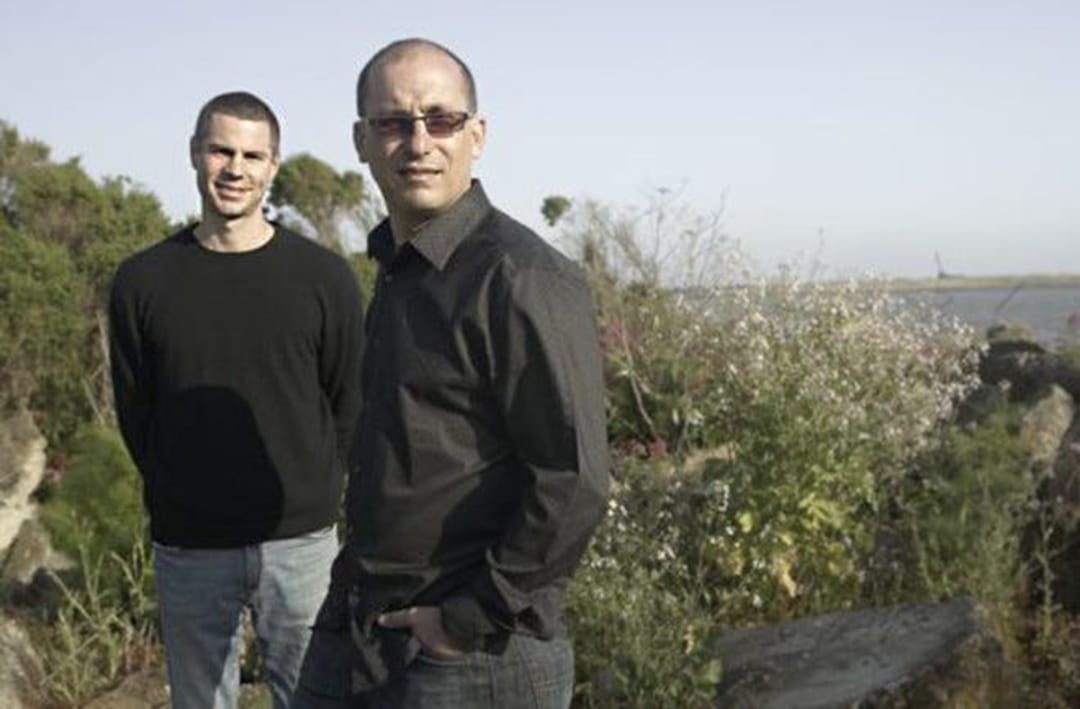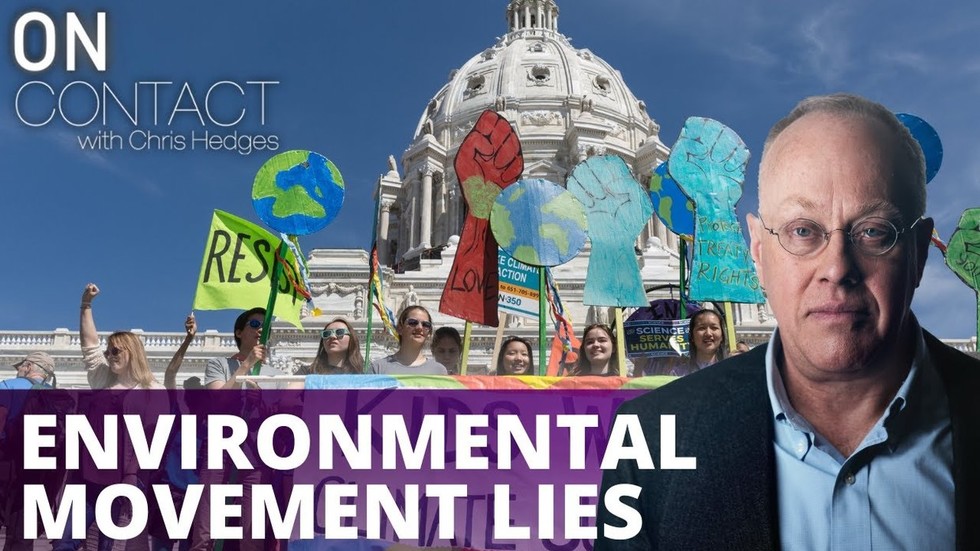

The Death of Environmentalism at 20
by Roger Pielke Jr. | Jun 20, 2024
Twenty years ago, Michael Shellenberger and Ted Nordhaus “dropped” (in Ted’s words) an essay at the annual meeting of the Environmental Grantmakers Association titled, The Death of Environmentalism (DoE). The DoE prompted a vigorous debate about environmentalism in the United States that continues today.
Here is how the New York Times characterized the reaction to the essay in 2005:
The leaders of the environmental movement were livid last fall when Michael Shellenberger and Ted Nordhaus, two little-known, earnest environmentalists in their 30’s, presented a 12,000-word thesis arguing that environmentalism was dead.
The essay, and the reaction to it, led directly to the creation of The Breakthrough Institute, a small but influential Berkeley-based think tank that consistently punches well above its weight.[1] After the DoE was released, Bill McKibben labeled Shellenberger and Nordhaus, “the bad boys of environmentalism.”[2]
The “bad boys” split a while back and have gone their different ways.[3] Ted continues to direct The Breakthrough Institute, which today has established itself as a leading think tank on environment and technology.
As I write this I am in San Francisco, California at the well-named Breakthrough Dialogue — the 14th and final annual gathering of Breakthrough’s fellow travelers, constructive critics, and simply curious. Being the final Dialogue, it is focused on looking back at the past 20 years since the DoE.
With this post, I’ll share a few of my thoughts on the DoE and the very important debate that it started and continues to rage today over the meaning and future of environmentalism in the United States.
I’ll be honest — when the DoE first came out and everyone was discussing it I was not a fan. Not at all. Overpopulation? A need to make global warming sound apocalyptic? Hurricanes and climate change? Oof, no thanks. At the time, I fired off an email to Michael and Ted pointing them to the recent manifesto that Dan Sarewitz and I had written about the climate movement in The Atlantic Monthly. That kicked off our long-term collaboration and friendship.
Ted acknowledged in his remarks at dinner last night, looking back at the DoE, they got a lot of the little things wrong, but they did get a lot of the big things right. I agree.
When I re-read the DoE this week for the first time in a while, I found their critique of the American environmental movement to still be largely current in 2024. I excerpt the key points below:
We believe that the environmental movement’s foundational concepts, its method for framing legislative proposals, and its very institutions are outmoded. Today environmentalism is just another special interest. Evidence for this can be found in its concepts, its proposals, and its reasoning. What stands out is how arbitrary environmental leaders are about what gets counted and what doesn’t as “environmental.” Most of the movement’s leading thinkers, funders and advocates do not question their most basic assumptions about who we are, what we stand for, and what it is that we should be doing.
Environmentalism is today more about protecting a supposed “thing” — “the environment” — than advancing the worldview articulated by Sierra Club founder John Muir, who nearly a century ago observed, “When we try to pick out anything by itself, we find it hitched to everything else in the Universe.”
Thinking of the environment as a “thing” has had enormous implications for how environmentalists conduct their politics. The three-part strategic framework for environmental policy-making hasn’t changed in 40 years: first, define a problem (e.g. global warming) as “environmental.” Second, craft a technical remedy (e.g., cap-and-trade). Third, sell the technical proposal to legislators through a variety of tactics, such as lobbying, third-party allies, research reports, advertising, and public relations.
When we asked environmental leaders how we could accelerate our efforts against global warming, most pointed to this or that tactic — more analysis, more grassroots organizing, more PR.
Few things epitomize the environmental community’s tactical orientation to politics more than its search for better words and imagery to “reframe” global warming. Lately the advice has included: a) don’t call it “climate change” because Americans like change; b) don’t call it “global warming” because the word “warming” sounds nice; c) refer to global warming as a “heat trapping blanket” so people can understand it; d) focus attention on technological solutions — like fluorescent light bulbs and hybrid cars.
What each of these recommendations has in common is the shared assumption that a) the problem should be framed as “environmental” and b) our legislative proposals should be technical.
Even the question of alliances, which goes to the core of political strategy, is treated within environmental circles as a tactical question — an opportunity to get this or that constituency — religious leaders! business leaders! celebrities! youth! Latinos! — to take up the fight against global warming. The implication is that if only X group were involved in the global warming fight then things would really start to happen.
The arrogance here is that environmentalists ask not what we can do for non-environmental constituencies but what non-environmental constituencies can do for environmentalists. As a result, while public support for action on global warming is wide it is also frighteningly shallow.
In a sense not anticipated by the DoE, environmentalism has in fact died — it has largely been replaced by what Mike Hulme, of Cambridge University, has called the ideology of climatism:
[T]he settled belief that the dominant explanation of social, economic and ecological phenomena is ‘a human-caused change in the climate.’ It frames the complex political and ethical challenges confronting the world today first and foremost in terms of a changing climate.
Climate change has swallowed up environmentalism.
At the Breakthrough Dialogue dinner discussion last night there was some optimism around the fact that the U.S. Inflation Reduction Act embodied the spirit of the DoE in its focus on carrots, not sticks (as in cap and trade or other types of carbon pricing). I’m not so sure. The IRA is going to spend a lot of money — perhaps on worthwhile things — but accelerating the rate of decarbonization will be difficult to detect.
U.S. environmentalism, or should I say climatism, remains as much of a special interest as it was twenty years ago when Ted and Michael scandalized the environmental community with such heresies. Writing today at The Liberal Patriot, Ruy Teixiera (a colleague of mine at AEI and brilliant observer of U.S. politics) discusses the ongoing greenlash against climate policies perceived to work against the interests of normal people:
Voters of course hate being told what car they must drive, how they must heat their homes, cook their food, etc. And they really, really hate high prices. Rather than fighting climate change, their strong preference is for cheap, reliable, abundant energy. No wonder that, when asked whether they would support paying something extra on their monthly utility bill to combat climate change, working-class voters opposed even paying an extra one dollar. And if the toll was raised to $10, these voters were opposed by a massive 38 points.
This makes it a problem, to say the least, that voters trust Trump more than Biden to address these issues. In an earlier Third Way poll, voters preferred Trump to Biden by 15 points on increasing domestic energy production and by 17 points on reducing the cost of energy and gas. Clearly a different approach is called for in this area other than emphasizing the importance of climate change, as dear to the hearts of liberal activists as this issue may be.
Above all, Democrats should keep in mind the “iron law of climate policy” as originally articulated by Roger Pielke Jr: When policies focused on economic growth and the cost-of-living confront policies focused on emissions reductions, it is economic growth and the cost-of-living that will win out every time.
The funny thing is that the experience of the Biden administration has been quite consistent with the iron law even though they’re loath to admit it. When Biden swept into office, cancelling the Keystone XL pipeline, blocking oil and gas exploration in the Arctic National Wildlife Refuge, and stopping oil and gas leasing on public lands, it seemed like his administration was going to fulfill the dreams of climate activists and dramatically ratchet down fossil fuel production. But economic imperatives soon put paid to those dreams and the Biden administration has presided instead over historic highs in oil and gas production.
The U.S. is an all-of-the-above energy superpower! But Biden and the Democrats never talk about that. Maybe they should. Greenlash is here and coming for them, unless they change course and unapologetically connect to the concerns of ordinary voters, rather than to the tiny group of climate-first voters. Carrying those voters by 96 points will be cold comfort if Trump rides the massive group of economy-first voters into the White House. And right now that looks very possible.
As Teixiera’s analysis shows, the project envisioned by Ted and Michael twenty years ago in their impactful essay remains as important as ever in 2024, even as environmentalism has itself changed. To channel the DOE in 20204 — energy and climate policy are far too important to be left to the special interests of the climate lobby.
Environmentalism is dead! Long live environmentalism!
Subscribe to The Honest Broker
Full disclosure: I was the first senior fellow of The Breakthrough Institute from 2008-2018 and count Ted, Alex, and others associated with the organization as close colleagues and friends. I’m a huge fan.
Ted and Michael get all the attention (and criticism) but I’d be remiss if I did not acknowledge the crucial role played by Peter Teague, who was awarded Breakthrough’s final Paradigm Award last night.
Even though they went their different ways, I still count Ted and Michael as friends.





0 Comments